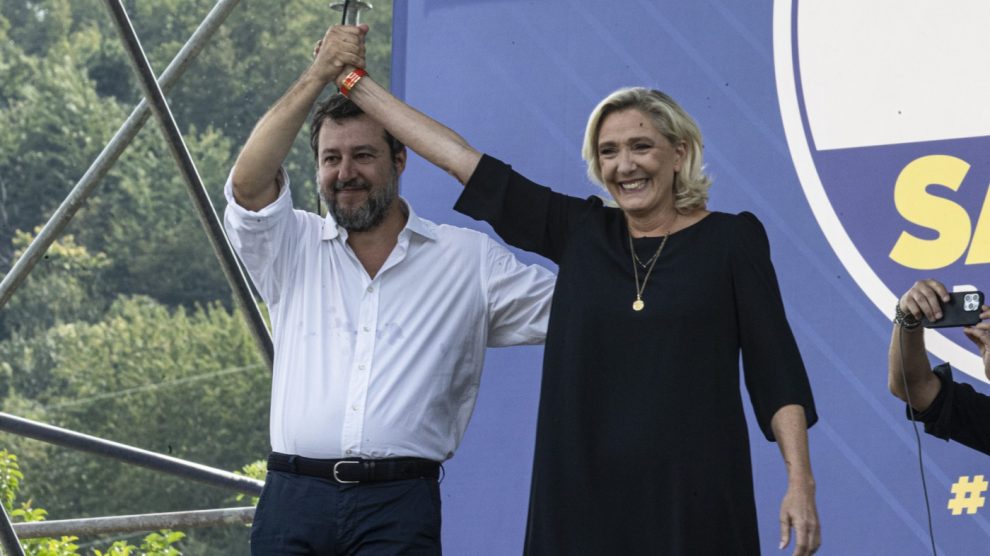Rome beefs up restrictive measures for irregular migrants. On Monday, following Prime Minister Giorgia Meloni’s weekend announcements, the Italian government approved a new package of laws concerning migration management. Among them, the maximum detainment time for irregular migrants has been extended from 6 to 18 months, so as to give Italian authorities more leeway to manage the processes of identification, background checks and repatriation.
- PM Meloni made a point of expressing her appreciation “for the unity and great teamwork of the entire government to deal with the immigration emergency and to find concrete solutions to the strong pressure exerted by the flows of irregular immigrants on our coasts.”
- This confirms that the centre-right coalition “has the same vision” and “everyone is working in the same direction, in spite of what one reads […] these days,” she remarked.
It’s a crucial time… Over 115,000 migrants have reached Italy’s shores so far this year, a three-fold increase since 2021, increasing pressure on Italy’s overloaded reception system as well as on the centre-right coalition as it struggles to deliver on one of their stated key priorities – migration control. All of this happens as European Union countries debate over reforming redistribution and contribution mechanisms, with the EU elections looming in June 2024.
… and it’s bigger than Italy. On Sunday, in a show of support, EU Commission President Ursula von der Leyen unexpectedly showed up alongside PM Meloni as she visited Lampedusa – where over 7,000 migrants made landfall in the space of a few days – and vowed to concretely support Italy through a 10-point plan, remarking that migration control is a “European challenge.”
- The Italian PM, who’s head of Brothers of Italy (BoI), saluted the EU Commission President’s presence as a sign of “responsibility” and stressed the need for European cooperation. The two have been leading the way for a novel EU approach to third countries through an agreement with Tunisia.
- Ms Von der Leyen’s trip to Lampedusa underscores that those are European as well as Italian borders, said PM Meloni on Monday, promising the government will “closely follow” the EU’s commitments to Italy, including the quick release of funds for Tunisia.
- On his part, Foreign Minister Antonio Tajani (who leads Forza Italia, aka FI, and is part of the European People’s Party) vowed on X to raise the matter of migration at the United Nations General Assembly in New York so as to find “shared and effective solutions.”
Elsewhere in Italian politics, Transport Minister Matteo Salvini was attending his party’s traditional meet-up in Pontida alongside his French ally Marine Le Pen, as the two had announced. As the two bolstered their political closeness – embodied by their belonging to the same European group, Identity and Democracy (ID), which also includes Germany’s AfD –, the League leader harshly criticised Mr Tajani’s repeated refusals to ally with his European allies.
- “Whoever excludes anyone will give Europe to the socialists. Whoever says no to pieces of the centre-right in Europe will open the way for the socialists to win. I don’t say no to anyone; whoever says no means they intend to govern with the socialists,” said Mr Salvini at the event.
- Although he stressed that the government was united in tackling migration (“she in Lampedusa and I here are the synthesis of the same goal and common destiny”), Mr Salvini blasted the EU’s “distant, deaf and arrogant” approach to Italy’s calls on migration.
- Both him and Ms Le Pen also broke out their Eurosceptic lines, vowing to oppose “organised migratory wave”.
The bottom line. Even though it’s early in the road to the 2024 elections, the differences in the Italian parties’ messaging have already emerged quite clearly. As the political expert and professor at the University of Bologna Paolo Pombeni told our sister website, Minister Salvini had consolidated his choice to stick with ID and adopt a confrontational tone vis a vis the EU.
- In contrast, PM Meloni and FM Tajani are working to validate Italy’s image as a responsible actor and toeing the line of intra-EU cooperation to deliver long-term solutions.





